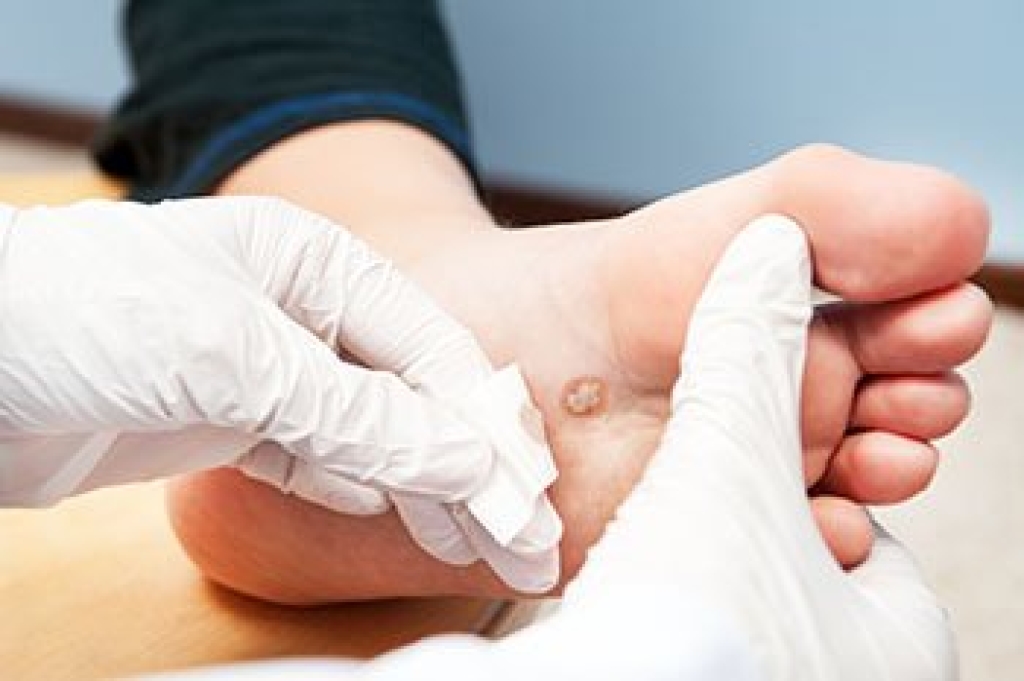
Viral infections caused by the human papillomavirus (HPV) that enter the skin of the feet through cuts or breaks can lead to the development of a plantar wart. These are thickened, rough growths of a lighter color than skin that are typically flat, and may have a ridged pattern. They usually develop in high pressure areas, such as the heel and ball of the foot. A small, clotted blood vessel can sometimes be visible, looking like a dark dot in the center of the wart. Sometimes plantar warts grow individually, or they may form in clusters, called mosaics. Because plantar warts grow on the bottom of the feet, they can be painful as the weight of the body bears down on them while standing or walking. Plantar warts are highly contagious, with the HPV spreading through direct contact with another person’s skin, or by sharing personal hygiene items, footwear, or towels that are infected with the virus. Plantar warts are hearty, making them difficult to treat, and have a high rate of recurrence if not completely eradicated. Therefore, plantar warts usually require professional care from a podiatrist who can use a variety of effective treatments to quickly and permanently treat them.
Plantar warts can be very uncomfortable. If you need your feet checked, contact our podiatrists from Superior Foot & Ankle Center. Our doctors will assist you with all of your foot and ankle needs.
About Plantar Warts
Plantar warts are the result of HPV, or human papillomavirus, getting into open wounds on the feet. They are mostly found on the heels or balls of the feet.
While plantar warts are generally harmless, those experiencing excessive pain or those suffering from diabetes or a compromised immune system require immediate medical care. Plantar warts are easily diagnosed, usually through scraping off a bit of rough skin or by getting a biopsy.
Symptoms
- Lesions on the bottom of your feet, usually rough and grainy
- Hard or thick callused spots
- Wart seeds, which are small clotted blood vessels that look like little black spots
- Pain, discomfort, or tenderness of your feet when walking or standing
Treatment
- Freezing
- Electric tool removal
- Laser Treatment
- Topical Creams (prescription only)
- Over-the-counter medications
To help prevent developing plantar warts, avoid walking barefoot over abrasive surfaces that can cause cuts or wounds for HPV to get into. Avoiding direct contact with other warts, as well as not picking or rubbing existing warts, can help prevent the further spread of plantar warts. However, if you think you have developed plantar warts, speak to your podiatrist. He or she can diagnose the warts on your feet and recommend the appropriate treatment options.
If you have any questions please feel free to contact our office located in Long Beach, CA . We offer the newest diagnostic and treatment technologies for all your foot and ankle needs.
